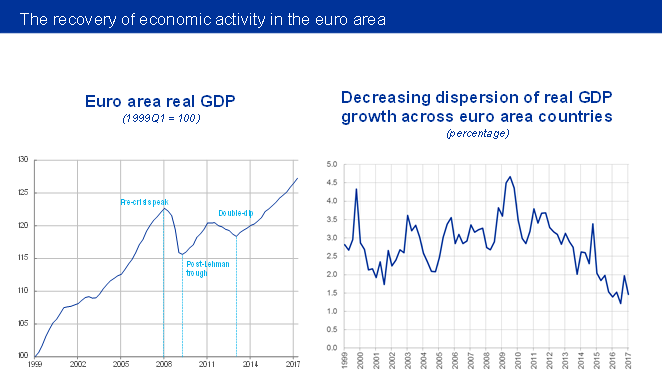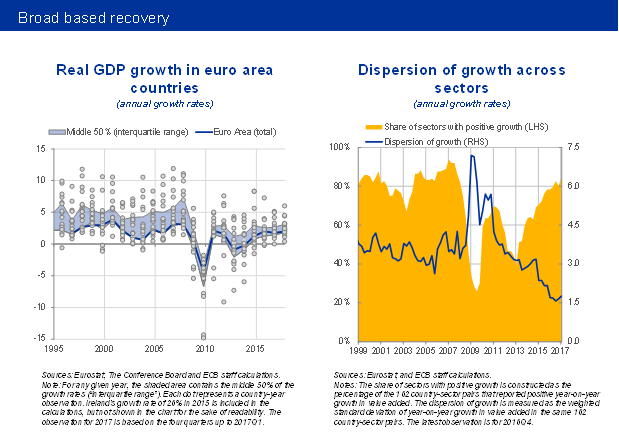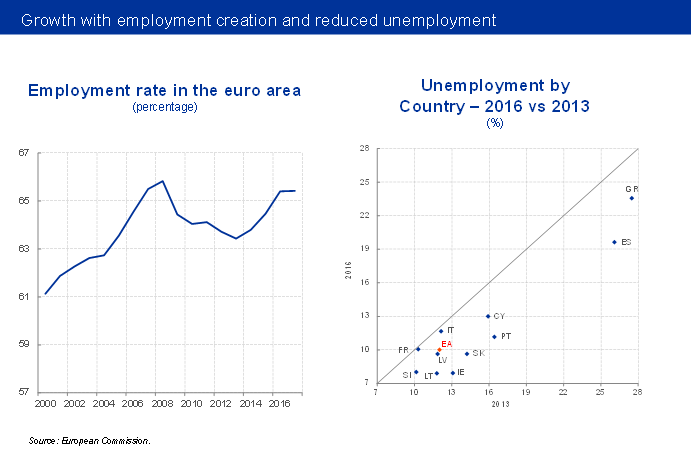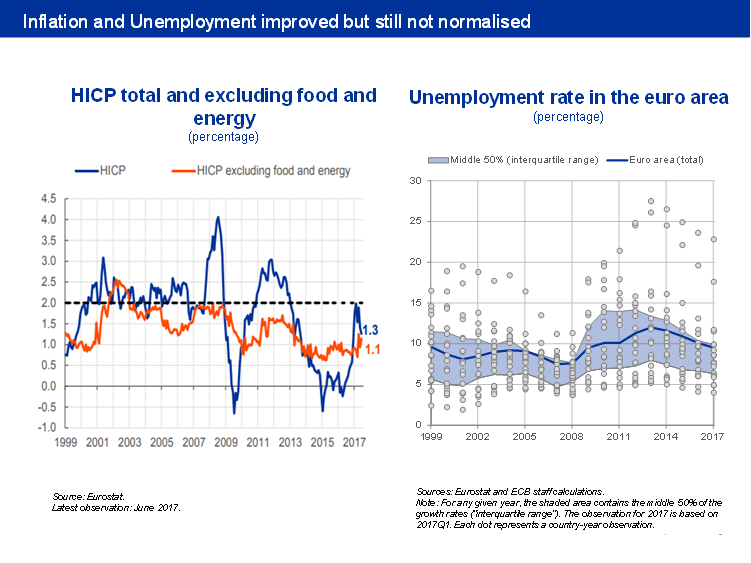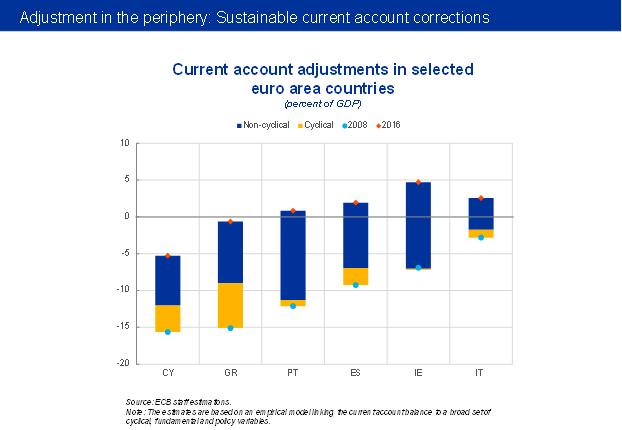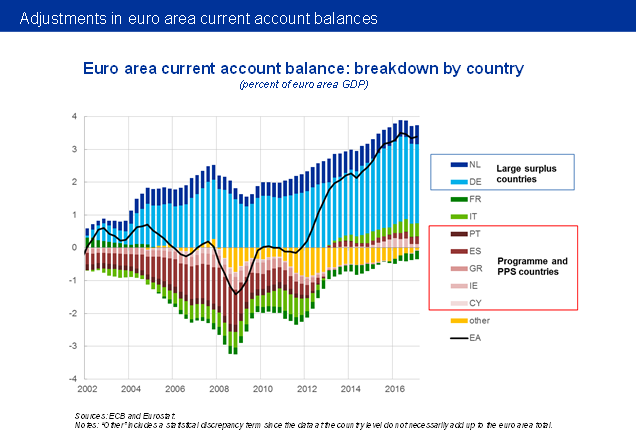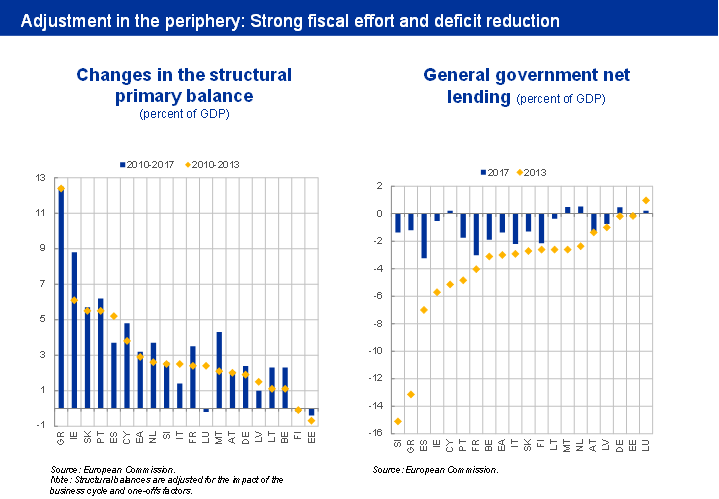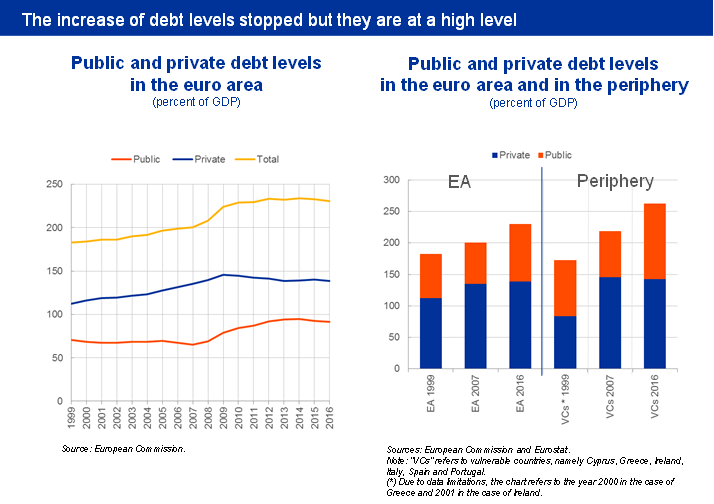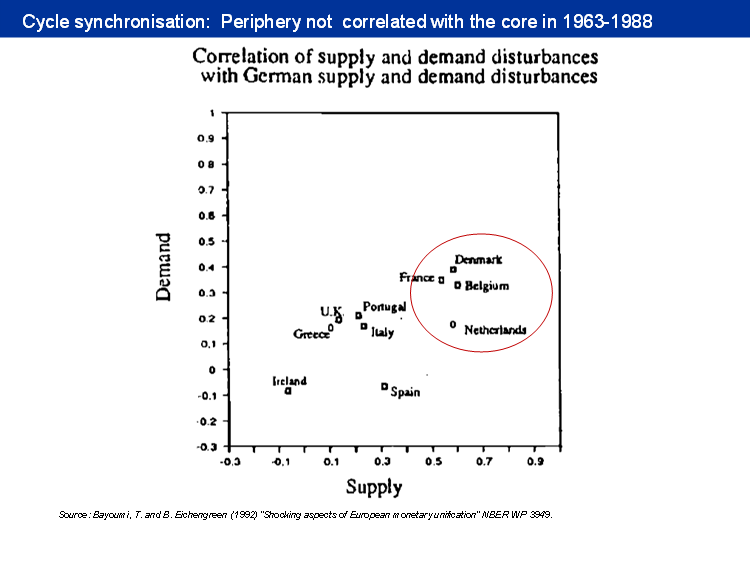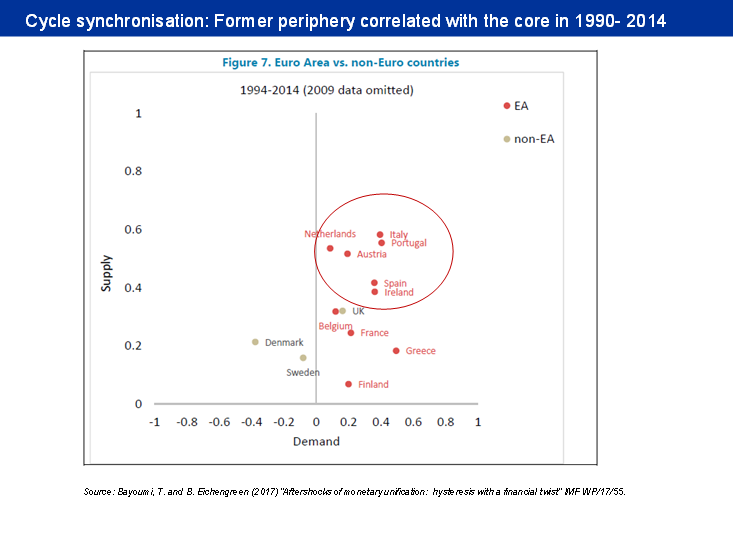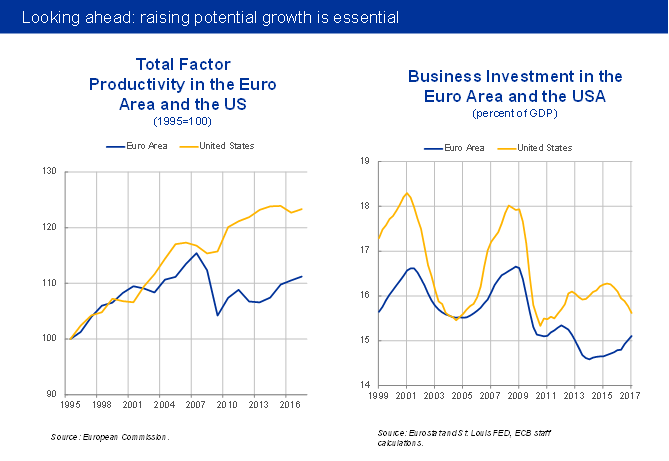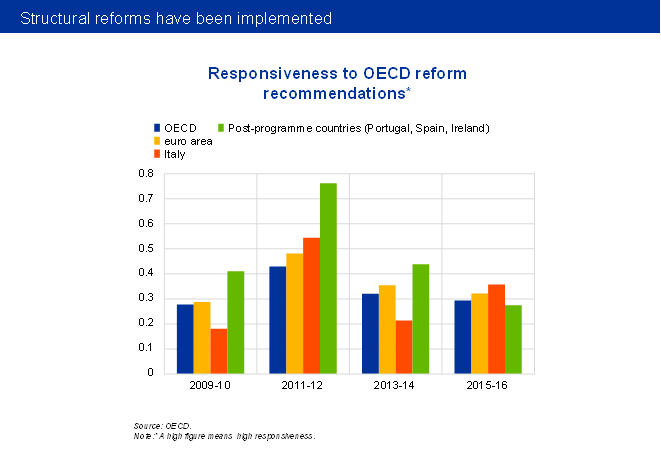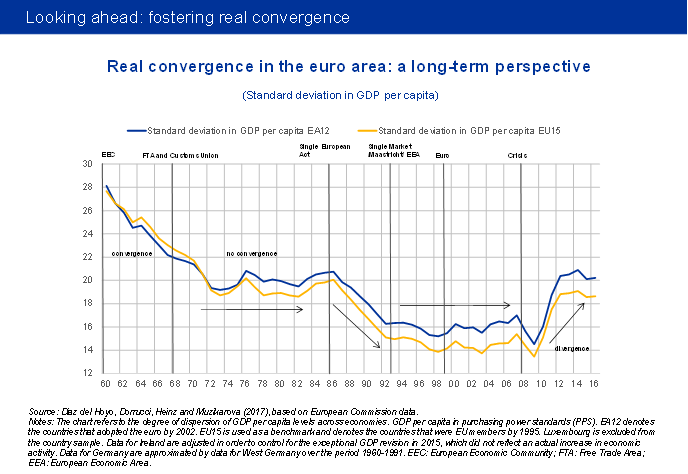Daily News 01 / 09 / 2017
EU-Ukraine Association Agreement fully enters into force
Today, the Association Agreement between the European Union and Ukraine enters fully into force. President of the European Commission, Jean-Claude Juncker, said: “Determination is a virtue. Today, in spite of all the challenges, we have made it. With the entry into force of the Association Agreement with Ukraine, the European Union is delivering on its promise to our Ukrainian friends. I thank all those who made it possible: those who stood on Maidan and those who are working hard to reform the country for the better. This is a day of celebration for our European continent.”Federica Mogherini, High Representative of the European Union for Foreign Affairs and Security Policy and Vice-President of the Commission, said: “Today marks the start of new chapter in our relationship. A closer association between the European Union and Ukraine means closer ties between our citizens, bigger markets and more opportunities for businesses and entrepreneurs, increased sharing of experience, information and expertise. It shows that we share the same values, that we have the same objectives, and that the Ukrainian people can count on the European Union’s support for the years to come.” European Commissioner for European Neighbourhood Policy and Enlargement Negotiations Johannes Hahn said: “Generations of Ukrainian citizens to come will reap the benefits of closer association with the EU. The first concrete results of implementation of the Agreement can already be seen: Ukraine’s exports to the EU have increased and the EU has confirmed its position as Ukraine’s first trading partner. Ukraine’s recent reform efforts have been unprecedented, while much work remains such as in the fight against corruption, which must be pursued. The European Union will continue its support for Ukraine’s reform efforts, with both expertise and financial support.”The Association Agreement, including its Deep and Comprehensive Free Trade Area (DCFTA), is the main tool for bringing Ukraine and the EU closer together: it promotes deeper political ties and stronger economic links, as well as respect for common European values. The DCFTA provides a framework for modernising Ukraine’s trade relations and economic development by opening up markets and harmonising laws, standards and regulations with EU and international norms. A full press release is available online and more information on EU-Ukraine relations can be found in the factsheetor on the websiteof the EU Delegation to Ukraine. (For more information: Maja Kocijancic – Tel.: +32 229 86570; Adam Kaznowski – Tel: +32 229 89359; Alceo Smerilli – Tel.: + 32 229 64887)
EU supporting countries affected by deadly floods and storms in Asia
Thousands of people have been killed and displaced by floods and extreme weather in Asia over recent weeks. The European Union has been in close contact with humanitarian organisations working in the region to channel emergency funding to help those most in need. “The EU is providing initial emergency funding of around €2 million for the most vulnerable people affected in India, Bangladesh, Myanmar and Nepal. This will help deliver food, safe drinking water, sanitation items, tents and other emergency essentials,” said Commissioner for Humanitarian Aid and Crisis Management Christos Stylianides. EU humanitarian aid has been provided for emergency relief assistance to populations affected in Bangladesh and Myanmar by tropical storms. For the recent floods in India the EU is assisting the most vulnerable communities and our support will directly benefit 25,000 people in flood-stricken areas. For flooding in Nepal, EU assistance is helping the most affected families in various districts across the country and 35,000 people will directly benefit from the aid. This emergency aid comes on top of the €53 million in EU funding for disaster risk reduction in these four countries and long term EU assistance to the region. (For more information: Maja Kocijancic – Tel.: +32 229 86570; Daniel Puglisi – Tel.: +32 229 69140)
Film Night: Exploring the link between VAT and the financing of terrorism on 5 September
Next week, the Commission will host a unique event to screen two fascinating films that explore how criminals are using VAT fraud to finance terrorism. The film night will be introduced by Commissioner Pierre Moscovici. Two leading independent filmmakers, Bø Elkjaer from Denmark and Sander Rietveld from the Netherlands, will discuss how years of reporting led them to uncover a vast, shadowy web of crime and fraud spanning the EU and stretching across the globe. Their films explore the link between the industrial scale VAT fraud that costs Member States €50 billion a year and organised crime, including terrorism. A Q&A session with the reporters will follow the screenings and refreshments will be served. The event will take place at Bouche à Oreille, 1040 Brussels at 18h30 on 5 September. Members of the press and civil society representatives are welcome to attend and can register by emailing patrick.mccullough@ec.europa.eu. (For more information: Vanessa Mock – Tel.: +32 229 56194; Patrick McCullough – Tel.: +32 229 87183)
La Commissaire Gabriel se rend à la Biennale de Venise où cinq films soutenus par MEDIA sont en compétition
La Commissaire chargée de l’économie et de la société numériques Mariya Gabriel se rendra, du 3 au 4 septembre, à la 74e édition du festival international du film de Venise. Au total11 filmscofinancés par le programme Europe Créative MEDIAd’aide au développement, à la promotion et à la distribution du cinéma européen, seront diffusés à la Biennale, dont cinq sont en compétition pour le prestigieux Lion d’or: “Custody” de Xavier Legrand, “Hannah” de Andrea Pallaoro, “The House by the Sea” de Robert Guédiguian, “Lean On Pete” d’Andrew Haigh et “The Leisure Seeker” de Paolo Virzì. La Commissaire Gabriel rencontrera des responsables du secteur audiovisuel afin de discuter des actions de l’UE venant en soutien au cinéma européen, notamment l’avenir du programme MEDIA, la révision de la directive sur les services de médias audiovisuels et la modernisation des règles de l’UE encadrant le droit d’auteur. A l’occasion de cette visite, la Commissaire a déclaré : “Le programme MEDIA joue un rôle essentiel dans le partage de notre identité commune d’Européens et dans le soutien à la diversité culturelle, qui en est le corollaire. La créativité artistique et culturelle est un élément fondamental d’une démocratie vivante et ouverte. C’est pourquoi, plus que jamais, nous voulons soutenir la création, la production et la distribution des contenus, pour qu’ils touchent les citoyens, à l’heure où la démocratie et les valeurs européennes sont confrontées à des attaques en Europe et à l’extérieur”. Lundi 4 septembre, la Commissaire Gabriel donnera un discours sur l’avenir du programme MEDIA au-delà de la période budgétaire 2014-2020 au Festival européen du film. Elle participera également à une conférence de presse avec le ministre italien de la culture Dario Franceschini, le secrétaire d’Etat aux affaires européennes Sandro Gozi et le directeur général en charge du numérique à la Commission européenne, Roberto Viola. Plus d’informations sont disponibles ici, et une fiche sur le programme MEDIA ici. (Pour plus d’informations: Nathalie Vandystadt – Tel.: +32 229 67083; Inga Höglund – Tel.: +32 229 50698; Julia Bräuer – Tel.: +32 229 80707)
Concentrations: la Commission autorise l’acquisition d’Omira par Lactalis
La Commission européenne a approuvé, en vertu du règlement européen sur les concentrations, l’acquisition indirecte de la société laitière Omira, basée en Allemagne, par le groupe laitier Lactalis, basé en France. Les activités des entreprises se chevauchent sur le marché de l’approvisionnement en lait cru en France et sur le marché des produits laitiers de longue conservation en Italie et Slovénie. Toutefois, la Commission a conclu que la concentration envisagée ne soulèverait pas de problème de concurrence compte tenu de la faible augmentation de la part de marché qui résulterait de la concentration et de la présence de nombreux concurrents crédibles et bien établis. L’opération a été examinée dans le cadre de la procédure normale du contrôle des concentrations. De plus amples informations sont disponibles sur le site internet concurrence de la Commission, dans le registre public des affaires sous le numéro d’affaire M.8549. (Pour plus d’informations: Ricardo Cardoso – Tel.: +32 229 80100; Maria Sarantopoulou – Tel.: +32 229 13740)
ANNOUNCEMENTS
Commissioner Navracsics on visit to Norcia, Italy
On Monday and Tuesday, 4 and 5 September, Commissioner for Education, Culture, Youth and Sport, Tibor Navracsics, will be in Italy to visit the region surrounding Norcia which was struck by several severe earthquakes between August 2016 and January 2017. While visiting the sites affected, the Commissioner, together with the President of the European Parliament, Antonio Tajani, will meet European Solidarity Corps volunteers helping restore cultural heritage sites and social services in the region. The projects, which will bring 230 European Solidarity Corps volunteersto the region until 2020, are part of the wider EU support to Italy. This includes notably the proposal to allocate to Italy €1.2 billion from theEU Solidarity Fund, the highest amount ever mobilised under this fund. On Monday 4 September at 18:00, Commissioner Navracsics will hold a Citizens’ Dialogue together with President Tajani (live streaming available here). Introduced by the Mayor of Norcia, Nicola Alemanno, the Dialogue will focus on EU post-earthquake reconstruction aid, the future of the European Union, the European Solidarity Corps and other EU initiatives for young people, as well as the upcoming European Year of Cultural Heritage in 2018. On Tuesday at 14:30, Commissioner Navracsics will hold a Facebook Live chat together with two volunteers from the European Solidarity Corps. There will be two press conferences, one on Monday evening (extracts available here) and one on Tuesday (extracts available here). (For more information: Johannes Bahrke – Tel.: +32 229 58615; Sara Soumillion – Tel.: + 32 229 67094)
Commissioners attend the annual Ambrosetti Forum this weekend
Several members of the College will be in Cernobbio, Italy, this weekend to participate in the European House Ambrosetti Forum, an annual event which focuses on current issues of major impact for the world economy and society. On Saturday morning, First Vice-President Frans Timmermans will deliver the keynote speech at the opening of the Forum, on ‘The Agenda to Change Europe’ and will participate in the subsequent panel debate on ‘The Europe We Want’. During the event, Commissioners Günther H. Oettinger, Pierre Moscovici andMargrethe Vestager will all take part in high-level roundtables and panel discussions. More information, the full agenda and the list of participants are available here. (For more information: Vanessa Mock – Tel.: +32 229 56194; Tim McPhie – Tel.: +32 229 58602)
Commissioner Jourová on visit to Tallinn
On Monday 4, Commissioner for Justice, Consumers and Gender, Věra Jourová will visit Tallinn. She will deliver a keynote speech at the Company Law and Corporate Governance Conference. She will present the aim of the upcoming company law package, which the Commission propse in the coming months. She will then meet Mr Urmas Reinsalu, Minister of Justice, to discuss the ongoing justice files under the Estonian presidency, such as the digital contracts proposal, the European Public Prosecutor’s Office and the first review of the Privacy Shield. (For more informations: Nathalie Vandystadt – Tel.: +32 229 67083; Mélanie Voin – Tel.: +32 229 58659)
Boosting cross border cooperation: Commissioner Creţu visits Ostbelgien
On Monday Commissioner for Regional Policy Corina Creţu will visit Eupen, the capital of the German-speaking community of Belgium (Ostbelgien). Alongside Minister-President Olivier Paasch and MEP Pascal Arimont the Commissioner will visit projects funded under Cohesion Policy interregional (“Interreg“) programmes. “Ostbelgien, a Belgian region at the crossroads between the Netherlands and Germany, has decades-long experience of interregional cooperation with the support of Interreg funding programmes,” said Commissioner Creţu ahead of her visit, “as such, it is a great laboratory to test new ideas to overcome remaining cross border obstacles. On the basis of good practices gathered in border regions like Ostbelgien, we will launch a new initiative to boost cross border cooperation at the end of September.” More information on EU funds in Belgium can be found on the Cohesion Open Data Platform. (For more information: Johannes Bahrke – Tel.: +32 229 58615; Sophie Dupin de Saint-Cyr – Tel.: +32 229 56169)
The Commissioners’ Weekly Activities
Upcoming events of the European Commission (ex-Top News)
